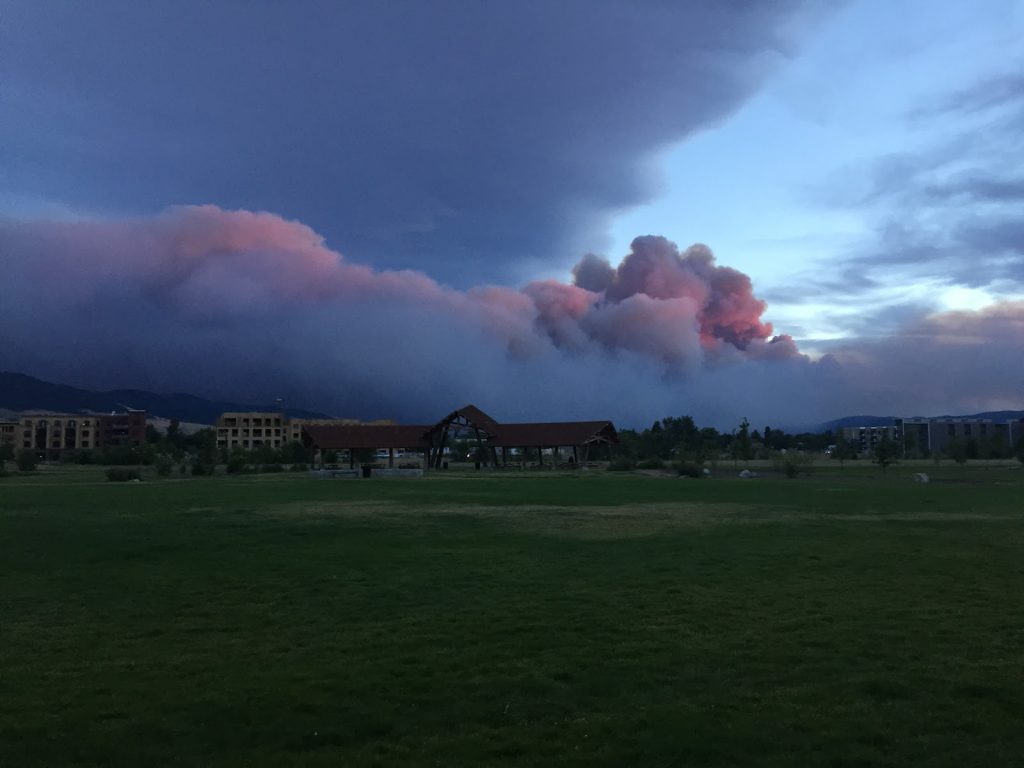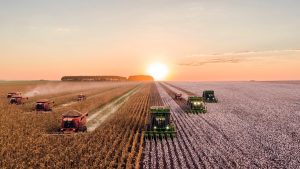By Anna Weinberg
Image: Smoke from the Lolo Fire, August 2017. Photo credit: Climate Smart Missoula
Summer is a funny time for Climate Smart Missoula. In a lot of ways, things slow down. People are on vacation, or busy floating down the river, so meetings and events are scarce throughout the months of July and August. Yet, we’re still plenty busy; we have a Summer Smart program to ramp up.
The last few summers, Climate Smart’s work has focused on all the ways our changing climate is affecting our summers with often greater heat and more frequent and intense wildfires. We attack these issues through many different ways including education around energy efficient summer cooling, how to properly care for our urban trees in the July heat, and ways to support your neighbors and community while we all deal with these transitions.
A crucial area of concern is increasing wildfires and the exacerbated health issues that come with increasing wildfire smoke.The tiny particles in wildfire smoke can easily enter our lungs and bloodstream when inhaled which can cause respiratory and cardiac issues, exacerbated asthma, and increased risk of heart attack and stroke. Larger particles in smoke can cause other symptoms like headaches, scratchy throats, and upset stomachs. All in all, some really bad news, and seniors, children, asthmatics, and pregnant folks are some of the most vulnerable to health effects.
When this region of Montana experienced such bad wildfire smoke in 2017, Climate Smart jumped into action and partnered with other organizations and agencies to not only educate and encourage folks to prepare for smoke, but to also distribute portable HEPA air filters to those most vulnerable in our community. This started with helping Missoula-area seniors and quickly developed to encompass public schools and daycares. These HEPA air filters have proven to be incredibly helpful and effective in how much gunk they filter out of the air, keeping folks healthier and making their indoor spaces more livable during wildfire smoke events.
Now, two years later, I’m tasked with reconnecting with those seniors and getting them replacement filters for their units before another smoke season is upon us (though we already got a weekend of smoke in May all the way from Alberta!). It feels good to take concrete actions to directly aid my community. When you’re working on such global, overwhelming issues like climate change, it can take some effort and creativity to find tangible opportunities for solutions and things that can get done right now. That’s making these opportunities to go to folks’ homes, see the differences these air cleaners are making in their lives, and seeing their gratitude, even sweeter.
So the summer moves onward. It’s a tricky thing; obviously we hope for a mild smoke season this year. Current predictions for Montana fires don’t look too bad. But, we still need to prepare all our materials, update our resources, and reach out to our community. Predictions have been wrong before. This work is about being ready for whatever comes next, taking on the next hurdle day by day, and accepting the extremes and stochasticity that come with a changing climate. I’ll say this: it sure keeps things interesting.








